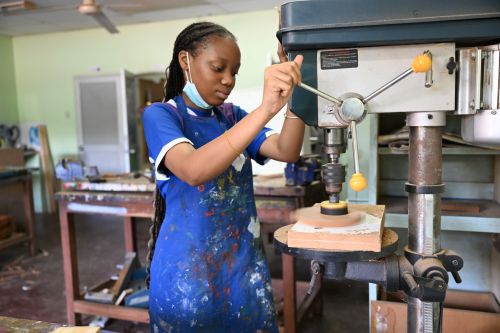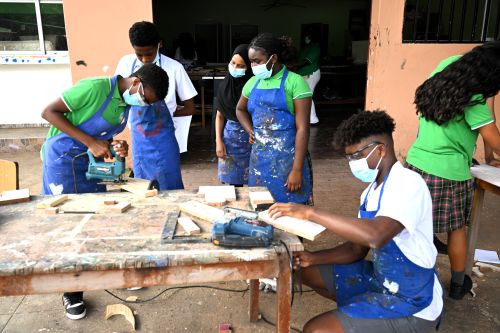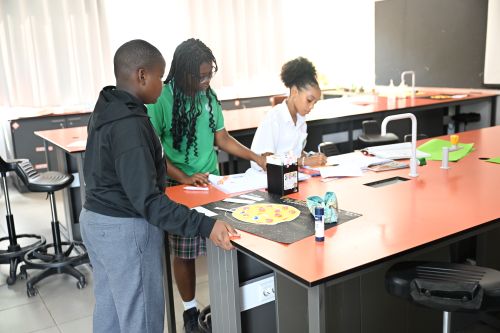KEY STAGE 3 - GRADE 7 THROUGH TO GRADE 9
 |
Grade 7, Grade 8, and Grade 9 represent three dynamic years in a learner’s education, building upon the foundations established in Primary School and defining the pathway towards Key Stage 4. Key Stage 4 is a two-year program culminating in IGCSE examinations.
Our Key Stage 3 curriculum is broad and balanced, offering all pupils the opportunity to build their skills and nurture their aspirations in preparation for the future. This stage typically caters to students aged 11–14 years. At our school, we follow the Cambridge International Assessment framework, ensuring a globally recognized standard of education.
|
Curriculum Details
|
For most subjects, students are taught in their form groups, which typically comprise 20–25 students representing a mixture of backgrounds and ability levels. All subjects are compulsory, except for foreign languages, where students can choose between Portuguese and French. The subjects taught at Key Stage 3 include:
- Cambridge Lower Secondary English (0861);
- Cambridge Lower Secondary English as a Second Language (0876);
- Cambridge Lower Secondary Mathematics (0862);
- Cambridge Lower Secondary Science (0893);
- Cambridge Lower Secondary Art & Design (0073);
- Cambridge Lower Secondary Digital Literacy (0082);
- Cambridge Lower Secondary Humanities (0839) - History & Geography;
- Cambridge Lower Secondary Music (0078);
- Cambridge Lower Secondary Physical Education (0081);
- Cambridge Lower Secondary Wellbeing (0859);
- Portuguese;
- French;
- Design & Technology.
|
| |
Extracurricular Activities and Clubs
At our school, we believe in fostering well-rounded individuals. Beyond the classroom, students are encouraged to explore their passions through a wide range of extracurricular activities and clubs. These opportunities not only complement academic learning but also promote creativity, teamwork, and leadership skills.
Sports
- Girls' and Boys’ Football
- Girls' and Boys’ Basketball
- Badminton
Clubs & Organizations
- Chess Club
- Environmental Club
- Language Clubs
- Model United Nations Conference
- World Scholars’ Program
- Girl Guides & Boy Scouts
- TED Talks
- Community Service Club
Each club and activity provides students with unique opportunities to develop their talents, build strong connections, and become leaders in their communities.
|

|
Assessment and Feedback
 i
i

Key Events and Highlights
Key Stage 3 students have the opportunity to participate in a variety of annual events designed to showcase their talents and celebrate their achievements. These events not only promote academic excellence but also encourage personal growth and creativity.
Annual Events
- Career Day
- Math and Science Quizzes
- Spelling Bee
- Science Fairs
- Sports Days
- Musical Showcases
School Trips
In addition to these exciting events, students are given the chance to embark on international and national school trips each year. These trips provide invaluable opportunities for:
- Experiential Learning
- Cultural Exchange
- Personal Growth
Through these experiences, students can broaden their horizons, gain new perspectives, and create lasting memorie



KS3 Staff Team
| Key Stage 3 is supported by a dedicated team of educators, including a Key Stage Head who oversees the curriculum and student development, class tutors who provide personalized support and guidance, and subject teachers who are experts in their respective fields. Together, they create a nurturing and stimulating environment that empowers students to achieve their full potential. |
 i
i






